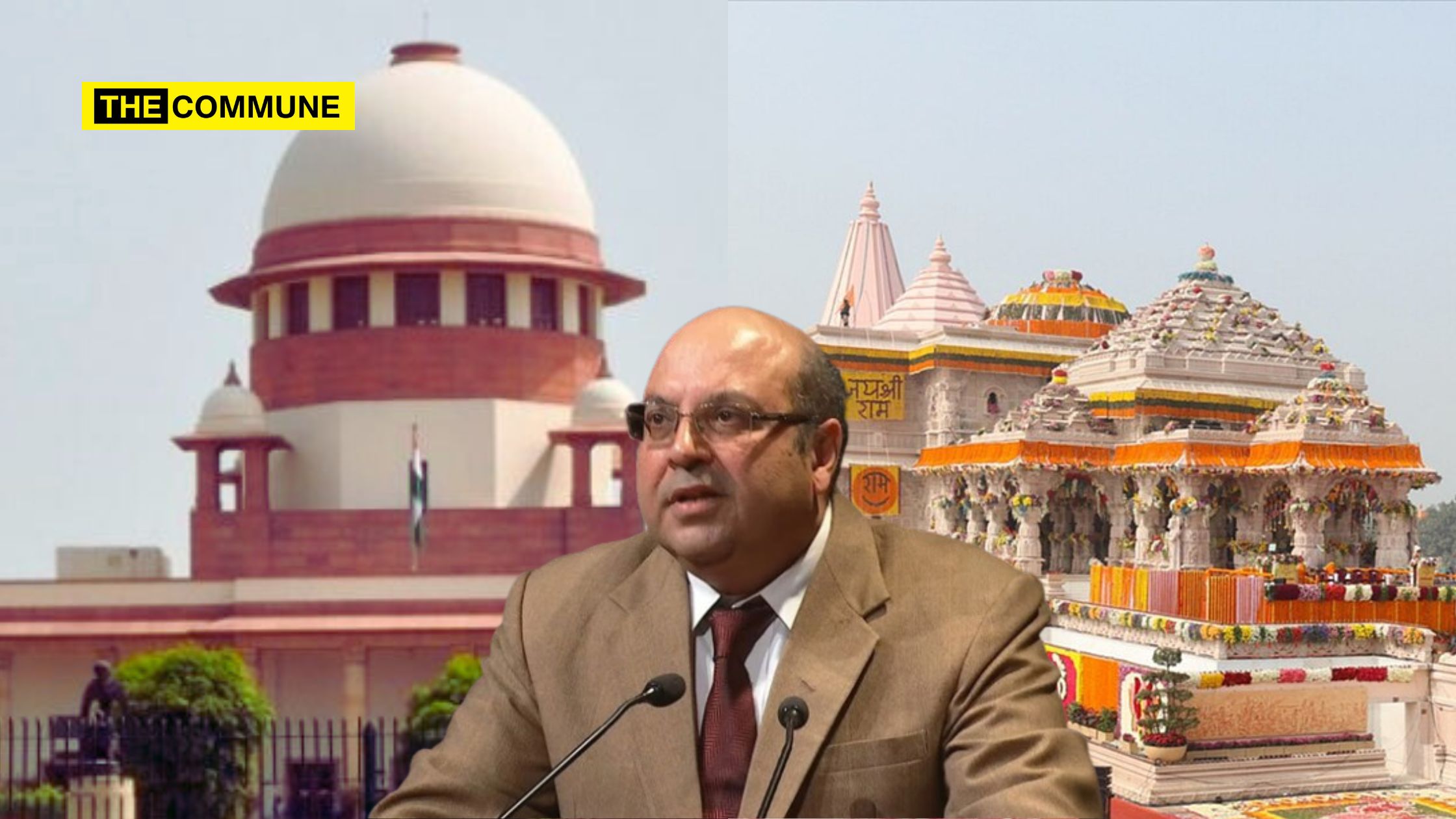
On 6 December 2024, former Supreme Court Justice Rohinton Nariman criticized the 2019 Ayodhya verdict, calling it a “mockery of justice” and an attack on secularism. Speaking at the Ahmadi Foundation’s inaugural lecture, he argued that the judgment, which granted the disputed Ram Janmabhoomi site to the Hindu Ram Janmabhoomi Temple Trust, undermined India’s secular fabric and heightened communal tensions. Nariman expressed concerns about the judgment’s potential to spark further religious disputes, particularly over mosques and dargahs. He also criticized the origins of the Ram Janmabhoomi movement, calling the 1984 karseva initiative “dictatorial.”
Nariman’s remarks dismissed the Supreme Court’s reliance on historical evidence and legal precedent in its judgment, which recognized the Ram Janmabhoomi site as the birthplace of Lord Ram for centuries and allocated alternative land for a mosque. He also criticized the lack of progress in legal action after the Babri Masjid demolition in 1992, yet ignored the Hindu community’s legal pursuit of justice over centuries.
Nariman’s critique mirrored those of his father, Fali S Nariman, and also raised questions about his views on Hindu traditions.
Here’s a look at the Hinduphobic nature of Justice Rohinton.
In 2021, Justice Rohinton sparked controversy during the 26th Justice Sunanda Bhandare Memorial Lecture by making a highly objectionable comment about the Rig Veda. He quoted, “Rig Veda says do not make lasting friendship with women because she would be like hyena.” This remark was widely criticized for misrepresenting the Vedas and sparking backlash for its perceived derogatory view of women.
This hinduphobe was pushing for breaking of traditional achārās in sabarimala.
But clowned out when it came to his own religion pic.twitter.com/2XH1kCEJnr
— കുട്ടൻ തമ്പുരാൻ 🇮🇳 (@kuttan_thambran) December 7, 2024
Additionally, Nariman’s lecture was criticized for being disconnected from Indian culture, as he failed to mention any significant Indian women figures such as Rishi Gargi, Draupadi, or freedom-fighting queens like Rani Tarabai. Instead, he focused on Western and foreign historical figures like Cleopatra, Queen Elizabeth I, and Catherine the Great, drawing criticism for his Euro-centric approach.
Justice Rohinton’s Duplicity
While he is Hinduphobic, Justice Rohinton is also a hypocrite. Did you know he protested the Mumbai subway under the Parsi Temple of fire, claiming that the metro may carry menstruating women?
He's a hypocrite.
He protested the Mumbai subway under the Parsi Temple of fire, claiming that the metro may carry menstruating women. https://t.co/XHOBfrnB6B
— Abhinav Khare (@iabhinavKhare) December 6, 2024
He is also a Parsi priest and was one when he was a serving judge.
Dikra is literally an ordained Parsi priest. This itself should've counted as conflict of interest. Not even going into how he is an ungrateful punk for being blatantly anti-Hindu over the yrs, despite his religion & culture surviving today because Hindus gave his ancestors home. https://t.co/5LaPOdBFmW
— Mithrandir (@Saumythr) December 5, 2024
Justice Nariman was a part of the bench hearing the Sabarimala case. While he carries conservative views when it comes to his own religion, especially when it comes to menstruating women coming near the Parsi Temple, he supported the entry of women into Sabarimala temple, because, after all, they were not Parsis!
I wonder what makes this crook hate Hindus who helped the Parsis survive.
He was part of the Sabarimala bench. The scoundrel knew that in Parsi Agiyari menstruating women are not allowed. Yet he didn’t recuse from the case and was upset when it went for a review. https://t.co/aRYnh6RsHx
— Rajesh Kumar Singh (हिंदु पद पादशाही) (@KNVR2023) December 6, 2024
He had argued for the Hindu side in the Ram Janmabhoomi case, but in 2018, he suddenly recused himself from the case itself.
In 2018 we got to know that Rohinton Nariman recused himself from all Ayodhya matters. Given his recent remarks, I request legal journos @LawBeatInd @barandbench @LiveLawIndia to ask him “𝘄𝗵𝗮𝘁 𝘄𝗮𝘀 𝘁𝗵𝗲 𝗰𝗼𝗻𝗳𝗹𝗶𝗰𝘁 𝗼𝗳 𝗶𝗻𝘁𝗲𝗿𝗲𝘀𝘁”?https://t.co/ltXWdF8ABc pic.twitter.com/7rikrVa56C
— Abhijit Iyer-Mitra (@Iyervval) December 7, 2024
Justice Rohinton Nariman’s recent critique of the Ayodhya verdict reveals more about his own biases than any substantive legal argument. His selective outrage and apparent Hinduphobic rhetoric demonstrate a troubling pattern of judicial commentary that seems more driven by personal prejudice than constitutional principles. His hypocritical approach is evident in his treatment of religious practices – supporting women’s entry in Hindu temples while defending restrictions in those of his own religion, depending on the religion. The fact that he argued for the Hindu side in the Ram Janmabhoomi case initially, only to recuse himself later, further exposes the inconsistency in his judicial and personal perspectives.
Nariman’s lecture at the Ahmadi Foundation appears less like a principled legal discourse and more like an attempt to vilify Hindu traditions, misquoting ancient texts and ignoring the rich historical and cultural nuances of India’s judicial landscape. His Euro-centric approach and selective criticism reveal a deep-seated bias that does a disservice to the complex, multifaceted nature of Indian secularism.
In essence, Justice Nariman’s comments reflect not a defense of secular principles, but a narrow, prejudiced view that cherry-picks historical narratives to suit a predetermined narrative – a approach unbecoming of a former Supreme Court judge who should represent judicial impartiality and respect for all religious traditions.
Subscribe to our channels on Telegram, WhatsApp, and Instagram and get the best stories of the day delivered to you personally.




